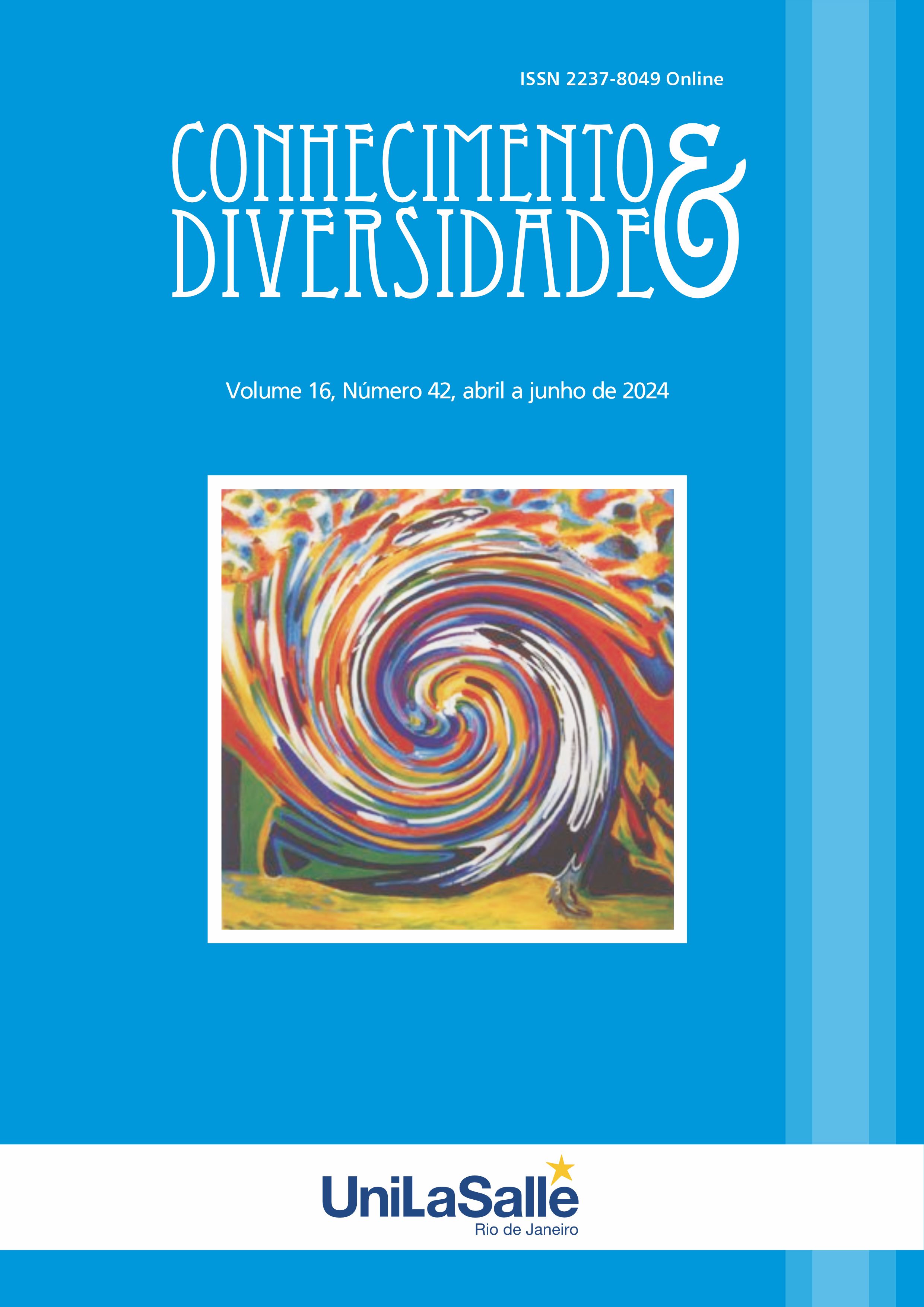A EVOLUÇÃO DA ALFABETIZAÇÃO DIGITAL DOS SOPRADORES DA EDUCAÇÃO
CARACTERÍSTICAS DOS PROCESSOS DE DIGITALIZAÇÃO
DOI:
https://doi.org/10.18316/rcd.v16i42.11717Palavras-chave:
ambiente educacional, gestão, controle, ambiente de informação, digitalização, comunicações.Resumo
O artigo revela a essência, o conteúdo e a estrutura da cultura digital dos estudantes universitários, as características psicológicas e pedagógicas da sua formação no ambiente informativo e educativo da universidade. O modelo do sistema pedagógico de formação da cultura digital dos estudantes universitários no ambiente informativo e educativo da universidade é desenvolvido e fundamentado. É compilada a metodologia de formação da cultura digital dos estudantes universitários no ambiente informativo e educativo da universidade. A eficácia do modelo de sistema pedagógico de formação da cultura digital dos estudantes de licenciatura no ambiente informativo-educativo da universidade foi verificada no processo de experimentação pedagógica do modelo de sistema pedagógico de formação da cultura digital dos estudantes de licenciatura no ambiente informativo-educativo da universidade com base nos critérios de eficácia desenvolvidos e na metodologia compilada.
Referências
Casas, J.P. (2020). Educating the Digital Generation: Exploring the Role of Teacher Education to Prepare for Digital Learners. Journal of Teacher Education and Professional Development, 3(1), 25-39.
Gardner, H. (2013). The App Generation: How Today's Youth Navigate Identity, Intimacy, and Imagination in a Digital World. Yale University Press.
Prensky, M. (2013). Digital Natives, Digital Immigrants. On the Horizon, 9(5), 1-6.
Prensky, M. (2010). Teaching Digital Natives: Partnering for Real Learning. Corwin Press.
Iasechko, S., Pereiaslavska, S., Smahina, O., Lupei, N., Mamchur, L., & Tkachova, O. (2022). Artificial Intelligence in the Modern Educational Space: Problems and Prospects. IJCSNS International Journal of Computer Science and Network Security, 22(6), 25-32.
Tsilmak, O., Iasechko, S., Poplavska, M., Motlyakh, O., & Kabanets, O. (2022). Modern Innovative Forms of Teaching Law at Other Schools in Ukraine. Revista Eduweb, 16(4), 166-177.
Tapscott, D. (1998). Growing Up Digital: The Rise of the Net Generation. McGraw-Hill.
Turkle, S. (2011). Alone Together: Why We Expect More from Technology and Less from Each Other. Basic Books.
Mills, K. A. (2016). Literacy Theories for the Digital Age: Social, Critical, Multimodal, Spatial, Material and Sensory Lenses. Multilingual Matters.
Thomas, D., & Brown, J.S. (2011). A New Culture of Learning: Cultivating the Imagination for a World of Constant Change. CreateSpace Independent Publishing Platform.
Warschauer, M. (2004). Technology and Social Inclusion: Rethinking the Digital Divide. MIT Press.
Lankshear, C., & Knobel, M. (2008). Digital Literacies: Concepts, Policies and Practices. Peter Lang Publishing.
Jenkins, H., Et Al. (2009). Confronting the Challenges of Participatory Culture: Media Education for the 21st Century, MIT Press.
Alkali, Y. E., & Amichai-Hamburger, Y. (2004). Experiments in Digital Literacy. CyberPsychology & Behavior, 7(4), 421–429.
Bawden, D. (2001). Information and digital literacies: A review of concepts. Journal of Documentation, 57(2), 218–259.
Bawden, D. Origins and concepts of digital literacy. In C. Lankshear & M. Knobel (Eds.). (2008). Digital literacies: Concepts, policies and practices (pp. 17–32). Peter Lang Inc.
Espinosa, E. O. C., Ruiz, J. A. C., & Mercado, M. T. C. (2021). The Training of the Digital Competence at the Postgraduate Level for a Knowledge-Based Economy. In IT and the Development of Digital Skills and Competences in Education, pp. 82–99.
Esteve-Mon, F., Cela-Ranilla, J. M., & Gisbert-Cervera, M. (2016). E Teach3D: Designing a 3D virtual environment for evaluating the digital competence of preservice teachers. Journal of Educational Computing Research, 54(6), 816–839.
European Commission (2019). Key competencies for lifelong learning. DOI: 10.2766/569540.
Downloads
Publicado
Edição
Seção
Licença
Copyright (c) 2024 Petro Koval, Tetiana Korzhova , Nadiia Kyrylenko , Lesya Lebedyk , Roman Tyagur

Este trabalho está licenciado sob uma licença Creative Commons Attribution 4.0 International License.
Conforme recomendado pelo o Public Knowledge Project, a RCD adota para seus artigos uma licença CREATIVE COMMONS: Atribuição CC BY 4.0.
Esta licença permite que outros distribuam, remixem, adaptem e construam sobre o seu trabalho, mesmo comercialmente, desde que lhe dêem crédito pela criação original.
Esta é a licença mais adequada oferecida.
Recomendado para a máxima divulgação e uso de materiais licenciados.



